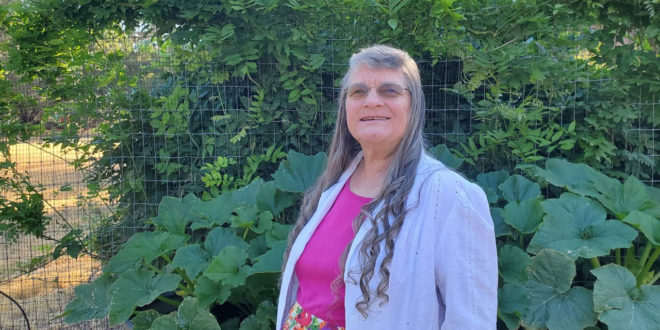We interviewed Kathy Bryant, an Adventist poet living in Northern California. For many years she has had a fascination with words and their arrangement. Such an interest makes poetry a natural fit.
Editor —Kathy, you love writing poetry, which seems to have fallen on hard times. Poems are not published and read as widely as they used to be. But a true poet doesn’t let that stop them from exercising their craft. Tell us a little about your background and your journey into poetry.
Bryant — I remember writing my first poem at age 10. It was a part of my schoolwork. It was very amateurish, but it worked back then. I thrived on words, and they fascinated me so much! I spent a good amount of time looking up words in the dictionary. And more than just loving words, I was attracted to the words and their meanings! After I was grown and an occasion arose, I would sit down and write a poem for that occasion. For a short period of time, I was a member of ACAP (Adventist Composers Arrangers and Poets). I sent in some of my poetry, which was published in their newsletter. That was a positive thing, but it didn’t continue. I also wrote music for one or two of their poems which they wanted to set to music. I’m bringing in music here because I grew up singing since I was two years old. Our family sang a lot for camp meetings and churches in several places.
A couple of years ago, I decided to check out some poetry groups on Facebook. That’s where my poetry really took off! They had all kinds of resources to help you write. I began winning certificates and awards. I am now published in many anthologies, with more to come. I hope someday to publish a complete book of my poetry. I see this as a way to be a positive witness for God.
Editor —Interesting. So you are a wordsmith—someone who enjoys arranging words to maximize their impact and effect. Some poetry is very rhythmic, with every other line ending with rhyming words. Others write free verse, or what I call asymmetrical poetry—where the thoughts follow a rhythmic cadence, but the words don’t necessarily rhyme. There’s probably a technical term for this. I’m not a poet, but I enjoy poetry a lot. Recently I read a description of poetry that delineates the difference between traditional and contemporary poetry.
“A traditional poem is any poetic work that adheres to a definite verse structure or set of characteristics. On the contrary, what some might call contemporary poetry demonstrates a departure from these characteristics that define a traditional poem. For instance, traditional poems are known for typically following particular rhyme schemes and metrical patterns. However, contemporary poems favor free verse, which employs no rhyme or poetic meter.” (by Joshua Wimmer and Gina Wilkerson)
Which form of poetry writing do you enjoy most, traditional or contemporary?
Bryant —I use both kinds of poetry…traditional and free verse. I even mix them up sometimes. When I collaborate with another poet, free verse is the easiest.
But I will say this! I MOST often prefer traditional poems. There is something inside me that ticks well with rhythm and rhyme. A metronome works well for that; then, you can get all your words to sync up correctly. Also, rhythm and rhyme do hold attention very well…especially with children! Poetry is so fascinating and works well for a learning experience. I create poetry that TEACHES words and their meanings. It sticks in your mind so you can learn well.
Meeting the Nym Family
I’d like to introduce to you,
The family of Nym.
They’re an important family,
You really should meet them!
There are so many members,
They are very prolific.
If you learn just who they are,
It is really, totally terrific!
SynoNYM is a needed word,
Meaning about the same,
Like beautiful and gorgeous,
When you want a different name.
AntoNYM is a needed word,
Meaning just the opposite.
Like when you’re saying black or white,
Sometimes they’ll be composite.
HomoNYM is a needed word,
When words sound just alike,
But mean an entirely different thing,
Like, weight or wait, O, yikes!
PseudoNYM is a needed word,
When a writer picks a name.
To call themselves, just when they write,
A fake name…but without blame.
This intro would be very long,
If I named each and every NYM,
But if you want to be well versed,
I’d learn very many of them!
Editor —That’s a clever way to put it. What have you done over the years to encourage your love for poetry? Have you taken any classes or joined a poetry group? In addition, who are your favorite poets?
Bryant —I have always loved words and studied the dictionary for their meanings. My poetry writing has been quite sporadic in my younger years. About two years ago, I decided to join some Facebook poetry groups, which brings me to where I am now. I want to put my poetry out there so it can get more exposure.
Even though I can’t really point to any poets who have influenced the way I write, I can name some whose style is my kind of poetry, or I can name several poets who have truly encouraged me to achieve. These include:
Dwayne Leon Rankin writes in a style closest to mine, I think.
Editor —Thank you so much for sharing your journey with us. I’m encouraged by people like you who have a passion for words and that use them to convey artful thoughts and messages. Your voice and style will surely bring encouragement to others.
Read some of Kathy Bryant’s poetry online | Snowflake Fantasies
Meeting the Nym Family, by Kathy Bryant "Poetree" © April 22, 2020
© 2017 - 2024 ASA. All rights reserved. Click here for content usage information.



